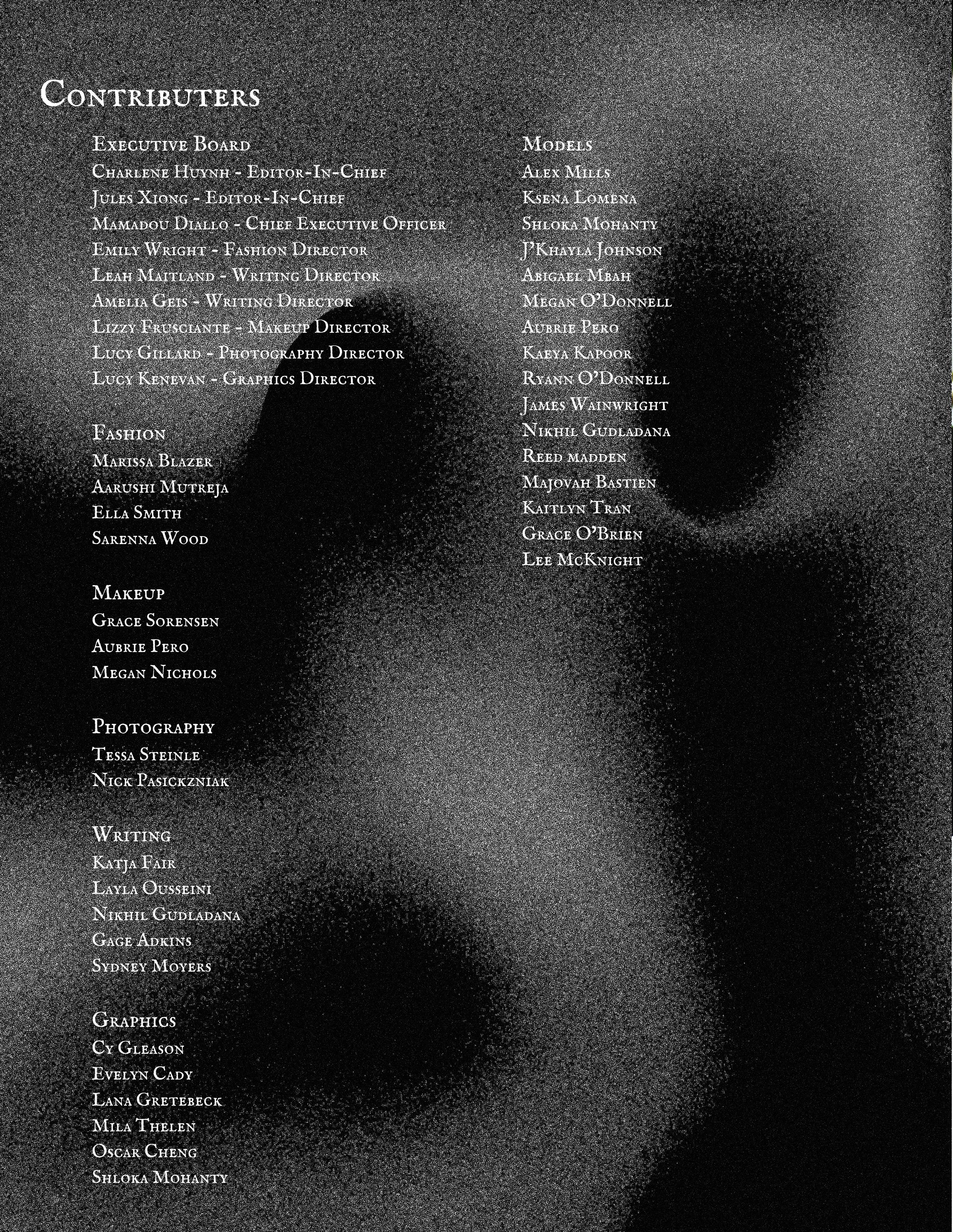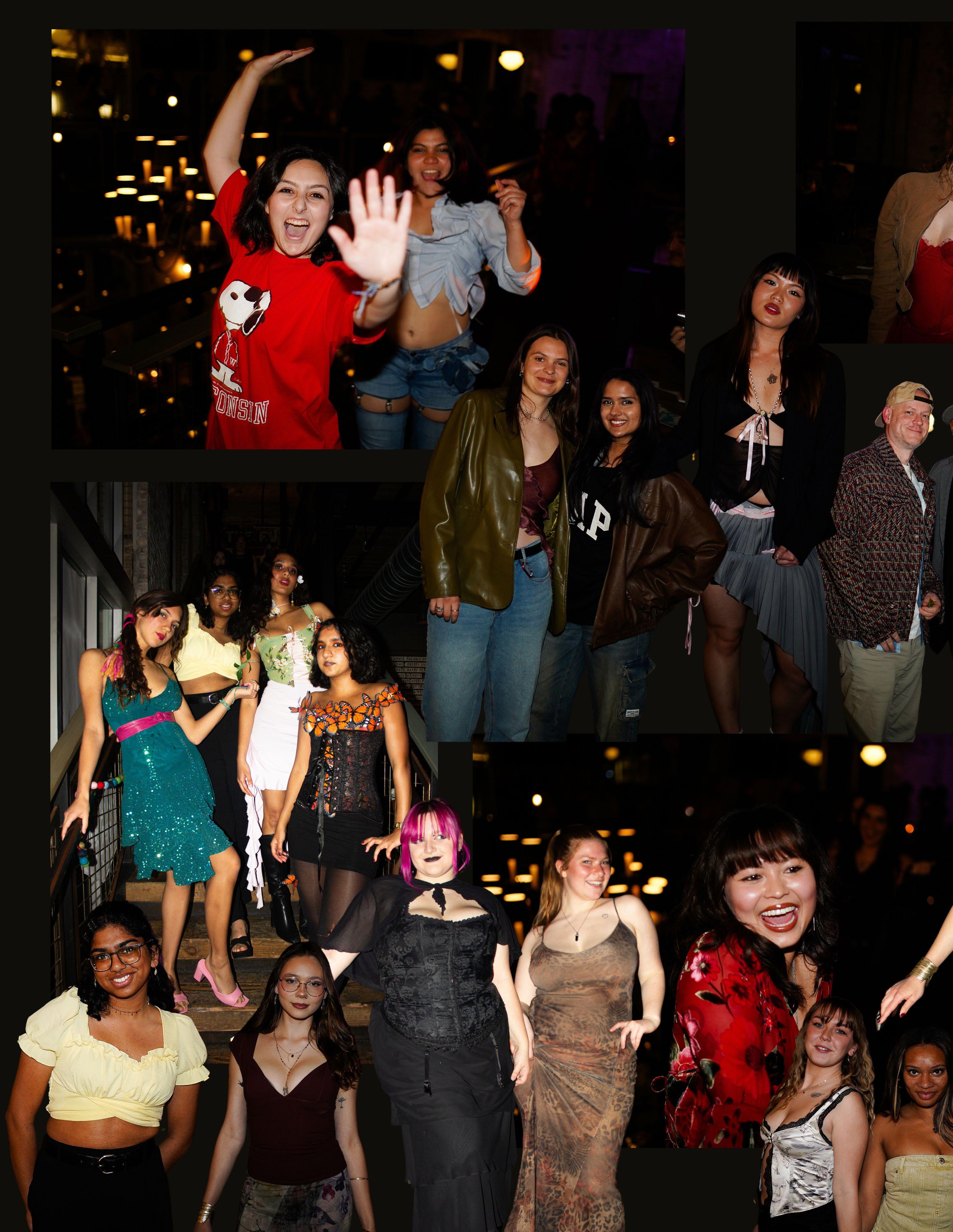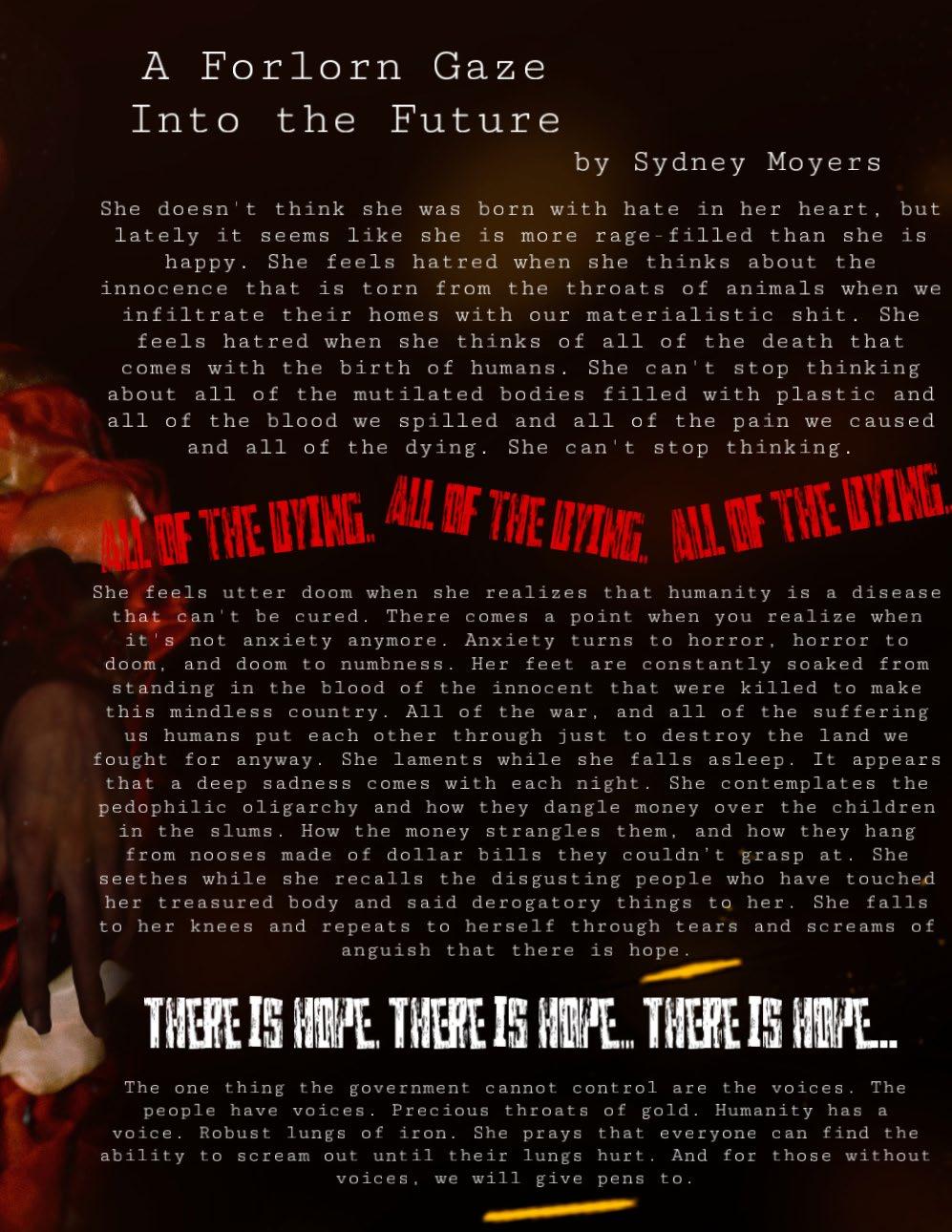







In every imagining of time, from past to present, marginalized identities and narratives have been erased from conversation by the dominant, white, cis-het society. This act of erasure happens in many forms, from colonization to appropriation, from history books to movie screens. And yet, these same oppressed peoples have found ways to insert themselves back into and commandeer the narrative, creating space both for themselves and others to find reflection, recognition, and new dreams for reality within, a place where their own stories can be both celebrated and told.
This show is a story honoring the efforts of people who refuse to be erased. In interrogations of and working with the genres of fantasy, horror, and science fiction, our show takes inspiration from the very real work being done by authors, artists, and creators within marginalized communities to share their experiences and stories with the world. With re-imaginations of the past and what is deemed ‘fantastic’, reflections of modern horrors happening within society, and dreamings of a new future for all, we welcome you to imagine the tales that could be told if we are able to stand up and rewrite the narrative.

In the first act of our show, we invite the audience to imagine a time that reflects the fantasies of a collective, moving away from the Eurocentric, colonial ideas of fantasy and a glorified past.

Following the past, it is important to recognize and bear witness to the active horrors being faced by marginalized groups within our society.
In the final act of Rewriting the Narrative, we hope to explore different dreams for the future, through the lens of science fiction (or what could be our realities).

All donations and part of the proceeds will go towards supporting the Madison Reading Project, a local organization providing free books and literary resources to children, parents and educators in the community in an effort to ignite a love for reading that reflects and affirms the unique identities of young readers. It is our hope that this fundraising will help continue the push for access to and creation of diverse stories for the current generation and beyond.















In the last century, members of the African Diaspora have utilized creativity in literature to chronicle new realities for people of color. Literature provides a complexity that other media forms cannot replicate. Not only in the process of worldbuilding does the plot accumulate depth, but the characters as well. In afrofuturistic literature, this contributes to the complex representation of people of color. Distinctly in fantastical or science ction novels, characters tend to be more expressive in sexuality, race, and class as the style of writing allows for this exploration. For instance, in the book Dawn by science ction author Octavia Butler, the protagonist, “Lilith Iyapo,” is a person of color who is gender uid. Lilith’s role as a protagonist aside from their sexual identity has a message in itself. Before the twenty-rst century, people of color were stereotypically written as supporting characters. Developing characters that challenge racial stereotypes and gender binaries proves to collectively nullify the assumption of their simplicity. In return when this print media is consumed in society, it normalizes the reality that black culture is multifaceted and independent
The continual whitewashing of history has attempted to diminish the identity and importance of the African diaspora. By exploring technology, art, and social liberation relating to black culture, Afrofuturism encourages a hopeful narrative for black culture. Similar to aged white wallpaper being stripped from a wall, Afrofuturism serves to rectify misrepresentation and empower black







